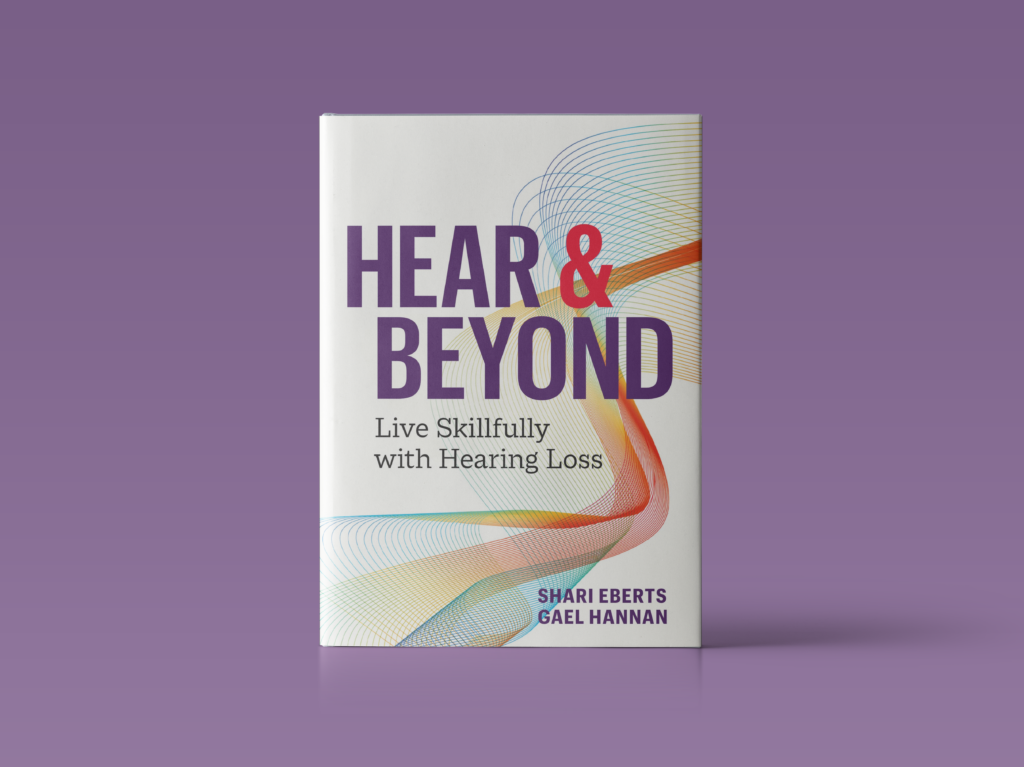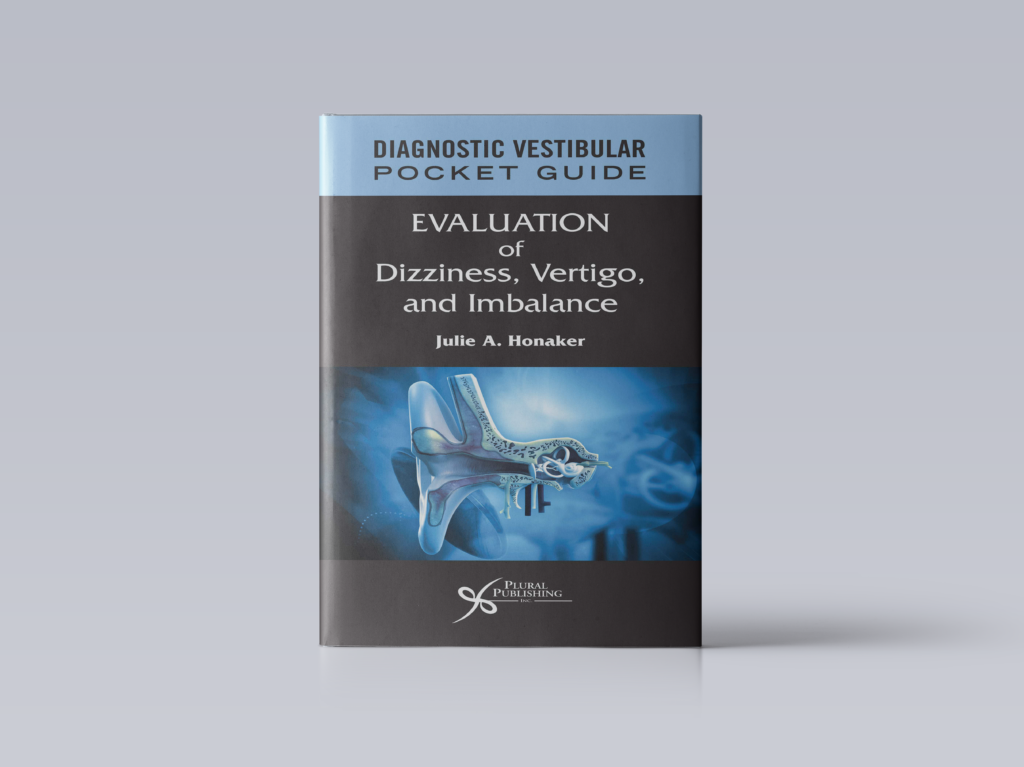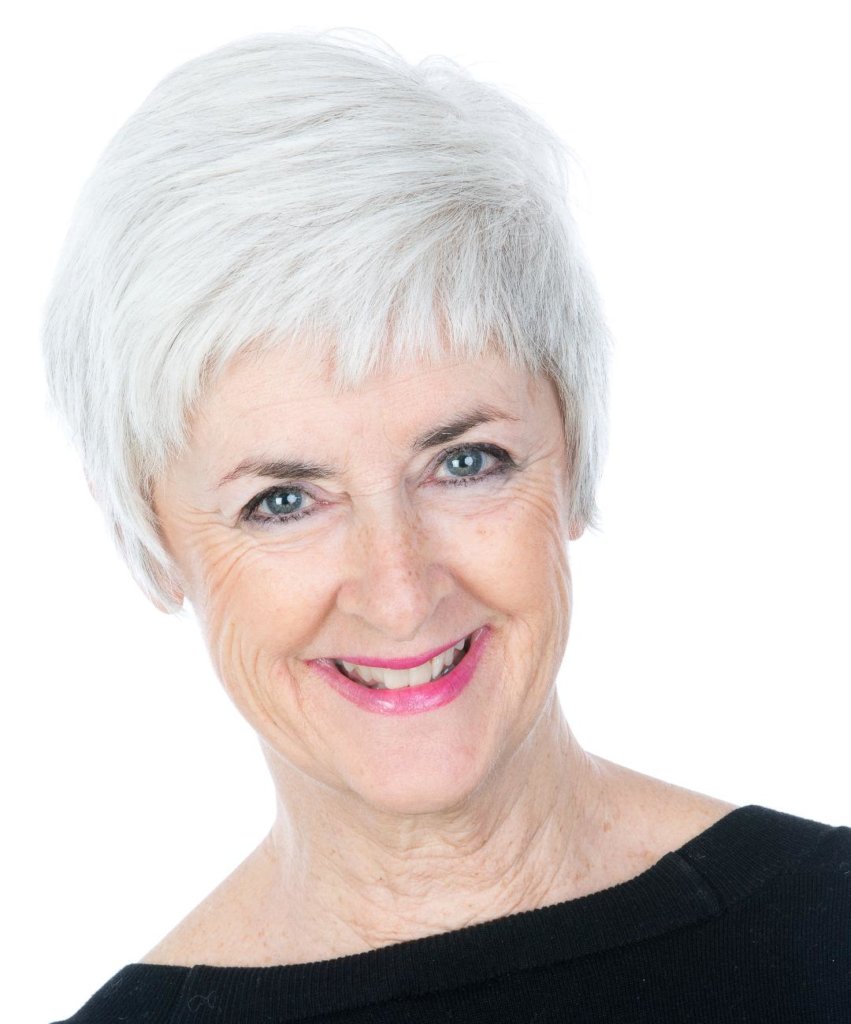Book Review
HEAR & BEYOND: Live Skillfully with Hearing Loss
Eberts, S, Hannan, G (2022). Page Two.

ISBN 978-1-77458-160-5 (paperback)
ISBN 978-1-77458-161-2 (eBook)
Reviewed by Rex Banks, AuD, Reg. CASLPO
Shari Eberts and Gael Hannan are arguably two of the most familiar faces in hearing health consumer advocacy on the planet.
For years, I have been following both, even once appearing with Gael in the early 2000s on a Discovery Health Channel segment about hearing loss. Individually, they are internationally sought-after presenters, writers, and personalities who traverse the globe, sharing insights, strategies, triumphs, and challenges about their personal journeys with hearing loss. They have joined forces as hearing health all-stars in their new book (spoiler alert, it’s brilliant!), Hear & Beyond: Live Skillfully with Hearing Loss. I was over the moon when I received an advanced copy and was asked to review their book in Canadian Audiologist. Without further ado, let me tell you all about it!
Hear & Beyond instantly captured my attention with its vibrant cover. A sound wave vector illustration on the jacket resonated with me as an audiologist and easily doubled as the multi-layered, winding road that people with hearing loss must travel. Then, flipping through the first few pages, I found this heartfelt dedication, “To all people living with hearing loss around the world. You are not alone.” In these first words, Shari and Gael let their readers know that they understand the loneliness and isolation of hearing loss and aim to change the narrative about it.
The book’s structure contains 304 pages broken down into six main sections, each with sub-topics, an introduction, conclusion, acknowledgements, notes, and an index. The main sections expertly address relatable issues such as hearing loss experience, mindset, technology, communication strategies, relationships, and hacks. Under each of these larger sections, Gael and Shari take on various subjects, everything from tinnitus to hearing loss and romantic relationships, plainly laying out how to successfully understand and address them.
At the beginning of each main section, Gael and Shari invite us into a conversation between their two personalized avatars as they set the stage for what they plan to discuss in the upcoming pages. In addition, their avatars appear throughout the book providing memorable quotes, thoughts, and key takeaways for the reader.
Hear & Beyond is well-written, delightfully sincere, engaging, and educational. Its renowned authors have packed it full of honest information from lived experience, making it the quintessential “how-to-guide” for people living with hearing loss. Appealing to everyone in hearing health, providers and consumers alike, it’s a must-read! As an audiologist, it is not for me to critique this book but to learn from it. The section on “Choosing the Right HCP” is pure gold in articulating what the public both needs and expects from their hearing healthcare provider and the role we play in our clients’ daily lives.
We strive to use all our audiology superpowers in clinical practice to benefit our clients. But when was the last time any of us last handed a client a book to read? Mental health counselors do this all the time–shouldn’t we? Hear & Beyond can be a uniquely unexpected and moving form of aural rehabilitation to offer clients a reference whenever they need ideas and support.
Hear & Beyond is available both in paperback and as an eBook and can be found for sale from various online vendors, including Amazon. You can also connect with Shari and Gael at HearAndBeyond.com and their blogs, LinkedIn, Facebook, and Twitter accounts.
Congratulations Shari and Gael on a fantastic collaboration. As the last sentence in your book reads: “Living skillfully with hearing loss is an ongoing process, and so, for each of us, the journey continues.” We too look forward to continuing this journey with you and can’t wait to see what you have in store for us next!
Diagnostic Vestibular Pocket Guide: Evaluation of Dizziness, Vertigo, and Imbalance
FIRST EDITION
By Julie A. Honaker
Plural Publishing, 2021
ISBN13: 978-1-63550-312-8

Reviewed by Erica Zaia
It was with excitement that I opened the dainty package containing this book. Vestibular Audiology is a complex subject with a steep learning curve and a large body of knowledge that doesn’t even look like it belongs to Audiology. My friends find it peculiar that I look at eyeballs rather than in the ears for most of my days. Vestibular testing has also advanced and expanded significantly in recent decades. For these reasons, books on the subject aren’t necessarily “light reading.” Unfortunately, that is not the case in the “Diagnostic Vestibular Pocket Guide: Evaluation of Dizziness, Vertigo, and Imbalance.”
It is a true pocket guide – it will fit in your pocket, whether you are wearing a lab coat or a fashionable blazer. And just like that, it will answer all your burning questions about what to do next and how to interpret the puzzling test results you are obtaining on your vestibular assessment.
The content is neatly organized sensibly, and I appreciate the grey tabs on the fore-edge, indicating the book chapters and appendices. It saves you time and makes it easy to find an answer in this book.
These well-thought-out details could all be less impactful, however, depending on the factual information contained in the book. That is not the case. I was impressed with the volume and depth of knowledge Julie could pack in this pocket guide. The text is full of well-presented tables with the most up-to-date and relevant data from the literature. I purposefully looked for details in several of the chapters and could find all of them explained clearly and concisely. For instance, different hand placements and testing techniques, according to the manufacturer of your vHIT goggles, are described and well-illustrated.
In fact, the visual is yet another positive aspect of this book. Figures and pictures are strategically utilized. I particularly liked the clean look of all the drawings designed for the BPPV chapter.
“Chapter 10 – Vestibular Care Path and Modifications to Standard Procedures Based on Patient Age” is a welcome reflection for the Vestibular Audiologist. It invites the clinician to mindfully select the most appropriate and relevant testing protocol, taking age and clinical presentation into consideration, rather than sticking with a predetermined test battery applied mechanically to everyone.
Similarly, “Chapter 11. Report Writing and Medical Referral Guide” brings the Vestibular Audiologist back to reflect on their role in diagnosing and managing vestibular disorders. It calls on the fact that obtaining test results is only one part of the puzzle for the individual in front of you and that your responsibility is far greater than stating those numbers on your report.
Table of contents
Chapter 1. Vestibular Principles and Pathways Review
Chapter 2. Appointment Preparation and Case History
Chapter 3. Office Vestibular ‘Bedside’ Examination
Chapter 4. Benign Paroxysmal Positional Vertigo (BPPV) Diagnosis and Treatment
Chapter 5. Electronystagmography (ENG)/Videonystagmography (VNG)
Chapter 6. Rotational Chair Test (RCT)
Chapter 7. Video Head Impulse Test (VHIT)
Chapter 8. Vestibular Evoked Myogenic Potentials (VEMPs)
Chapter 9. Computerized Dynamic Posturography (CDP)
Chapter 10. Vestibular Care Path and Modifications to Standard Procedures Based on Patient Age
Chapter 11. Report Writing and Medical Referral Guide
Appendix A – Peripheral, Central and Systemic Conditions, Symptom Characteristics, Clinical signs, and Management Options
Appendix B – Mental tasking ideas
Common Abbreviations
Index



